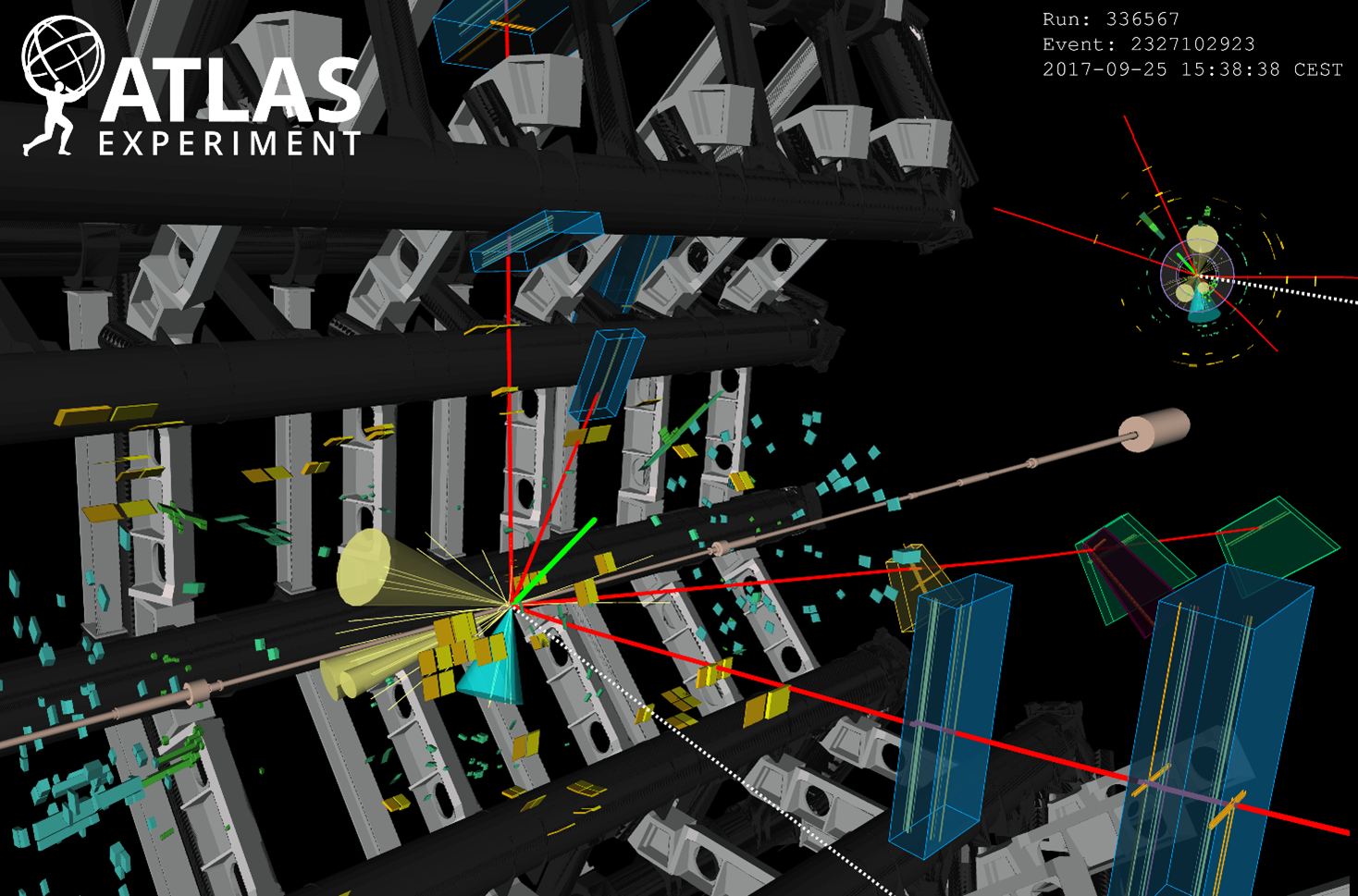Project goal
This project is investigating the use of quantum support vector machines (QSVMs) for the classification of particle collision events that produce a certain type of decay for the Higgs boson. Specifically, such machines are being used to identify instances where a Higgs boson fluctuates for a very short time into a top quark and a top anti-quark, before decaying into two photons. Understanding this process — known by physicists as ttH production — is challenging, because it is rare: only 1% of Higgs bosons are produced in association with two top quarks and, in addition, the Higgs and the top quarks decay into other particles in many complex ways or modes.
Project coordinator(s)
Sau-Lan Wu, Ivano Tavernelli, Sofia Vallecorsa, Alberto Di Meglio
Team members
University of Wisconsin: Chen Zhou, Shaujun San, Wen Guan IBM Zurich: Panagiotis Barkoutsos, Jennifer Glick
Project background
QSVMs are among the most promising machine-learning algorithms for quantum computers. Initial quantum implementations have already shown performances comparable to their classical counterparts. QSVMs are considered suitable algorithms for early adoption on noisy, near-term quantum-computing devices. Several initiatives are studying and optimising input data representation and training strategies.
We are testing IBM’s QSVM algorithm at the ATLAS experiment. Today, identifying ttH-production events relies on classical support vector machines, as well as another machine-learning technique known as ‘boosted decision trees’. Classically, these methods are used to improve event selection and background rejection by analysing 47 high-level characteristic features.
Recent progress
Different quantum classifiers have been investigated, including QSVM and quantum kernel methods. We compared their performance to classical models in terms of classification accuracy, training dataset size and the number of input features. We studied different types of noise and how they affect the final performance. We also compared the results obtained on IBM quantum hardware for two different Higgs decay modes.
Preliminary results, obtained using the quantum simulator, show that the QSVM can achieve performance that is comparable to its classical counterpart in terms of accuracy, while also being much faster. In addition, a quantum neural network was also developed; its performance was compared with that of the other quantum methodologies.
Next steps
We will continue with the optimisation of the models developed so far. The goal is to improve their performance and increase the size of the problem in terms of the number of qubits and training datasets. At the same time, we aim to reduce the classical computing resources needed for the simulation of quantum circuits, which today represent a bottleneck for most studies of this kind. This is a necessary step for creating quantum solutions suitable for more realistic problems.
|
Presentations
|
Publications
|
